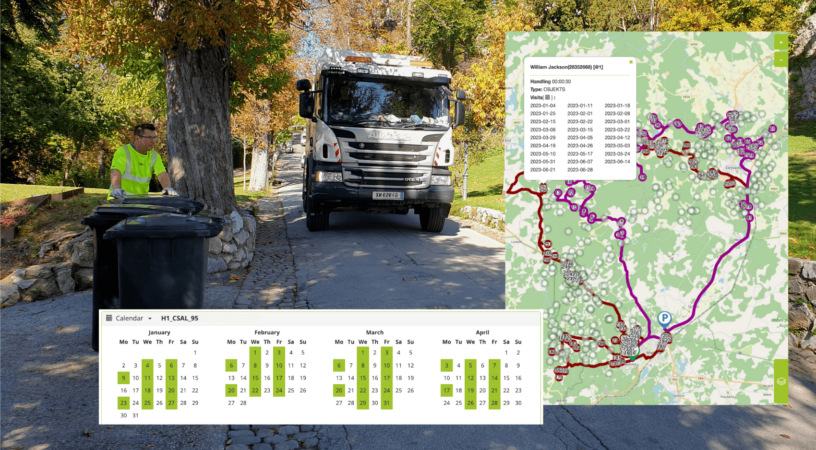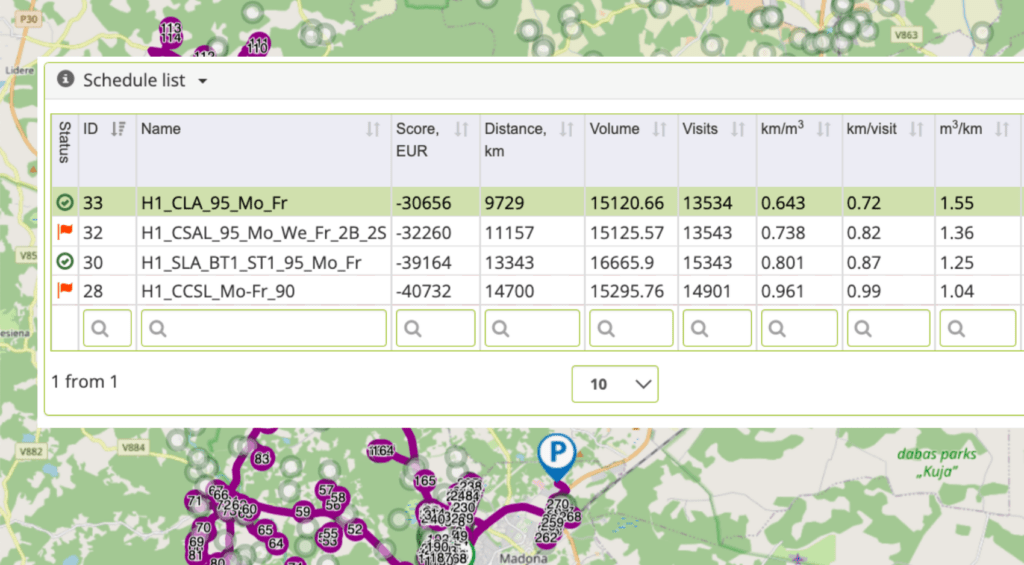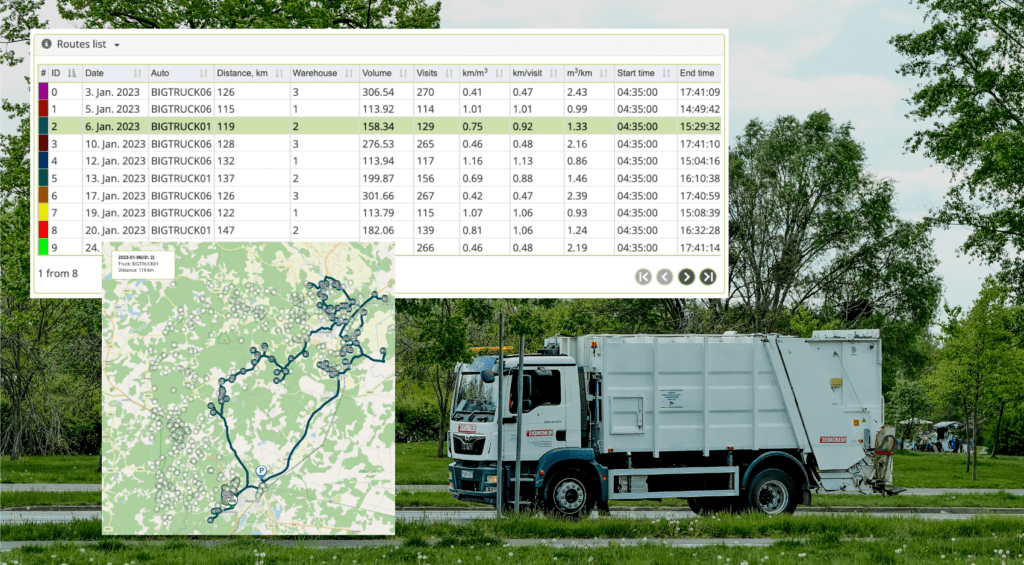Adapting to change with waste management pickup scheduling

Waste collection schedule planning is incredibly complex. Different types of segregated waste require separate collection and transportation, and remodeled waste collection schedules. Optimizing waste collection schedules brings significant cost reductions for waste management companies and ensures better service.
What makes waste collection scheduling so challenging?
It is virtually impossible to manually create optimized waste collection schedules because of the numerous complexities faced. Container sizes along with waste volumes and types vary enormously, while each client requires differing collection frequencies and pick up times.
How do you plan an optimal waste management schedule?
Nowadays, cutting-edge innovations are designed specifically for the purpose of optimal garbage pickup schedule planning. Such waste management software tools enable minimal manual intervention, while ensuring the best possible outcomes.
Mappost Scheduler is an intuitive but powerful tool for creating waste collection schedules. It analyses a client's unique collection requirements and uses modern, custom-developed optimization algorithms to produce optimal schedules for an entire period ahead.
Simulating collection scenarios
Using Mappost's powerful optimization software, you can modify input information to simulate different scenarios. By simulating kilometers driven or kilometers per visit, for example, this information can be used to make data-based decisions for more cost effective operation planning.

Scheduling software for waste management
The Mappost Scheduler offers modifying numerous input data fields:
- Schedule time period
- Operational days
- Truck capacity levels
- Geographical areas
- Waste types
- Vehicle availability
Scheduled outcomes are dependent on the parameters set. During the schedule creation process, data is collected, the vehicles are identified, and the operational time periods are defined. Mappost's modern, custom-developed optimization algorithms then examine millions of potential scenarios, before selecting the best option for the particular business.
Once these best case scenarios are identified, the total planned costs for the period (e.g. a year), planned distance, number of container visits, total waste volume, kilometers per cubic meter, kilometers per visit, and other cruical business metrics are used to determine the final version for the coming year's routes and schedules.
What does waste management pickup scheduling consist of?
Optimum schedule planning requires consideration of routes for each individual day, for each vehicle, and take into account distance, volume, and other factors including the scheduled visit dates for any specific collection points.

Scheduling software for transportation
Here are 3 factors worth simulating to make large efficiency improvements:
Separate areas versus combining them in a larger schedule
Some of the largest efficiency improvements come from combining areas that are usually served separately. When planning, we have the tendency to visualize artificially created areas. There are obvious inefficiencies in this approach as we can't see the volumes to be collected, time restrictions, and the combination of loads on this simple, two-dimensional map. With an advanced optimization system like Mappost, unbiased analysis of geographical locations leads to optimum routing solutions.
Differences between running routes from different locations
Companies are often guilty of sticking to routines. With Mappost's detailed cost summaries, a business can test whether their usual preconditions (e.g. which parkings to use) for schedules are indeed the most efficient choices.
Altering the length of work days
In some situations, varying working hours by day (making some days shorter, some longer) can bring impresive overall optimization benefits. Such efficiency improvements can have a massive impact on a company's profit margins.
What happens after the best schedule is chosen?
Your schedule is your master plan. But as the planning period for a schedule is inevitably long, deviations from it are unavoidable.
Mappost automatically takes into account changes brought about by such factors as traffic restrictions or new clients joining. The latest data is used to re-optimize routes for the following day on an operational level. These unique customized routes are then sent to each individual employee.
It's time to say goodbye to Excel spreadsheets
For too long, waste collection schedules have been created by a select few employees using opaque know-how and lengthy Excel spreadsheets. Schedule creation process is viewed as a long, sacred period at the end of each year, leaving businesses to rely on outdated methods. But with waste collection optimization software, companies can challenge the belief that there are no alternatives. By having a transparent view on the plan and measuring results in measurable and comparable ways, businesses can create more efficient waste collection schedules, saving time and money while also reducing environmental impact.
Conclusion: Why businesses need to invest in waste management pickup scheduling
Waste collection is facing massive change with increasing regulation, a growing focus on waste sorting and sustainability, and the onset of rapidly developing cost-saving technologies. Waste management service providers who don't adapt are likely to win fewer tenders and fail to satisfy the demands of their stakeholders.
Digitizing and optimizing trash pickup schedule collection schedule planning using advanced systems like Mappost Scheduler is one way businesses can adapt to and prosper in this brave new world.
Please select the most suitable time for a call with Mappost representative
We will be happy to share more about Mappost, demonstrate the system and answer all your questions!